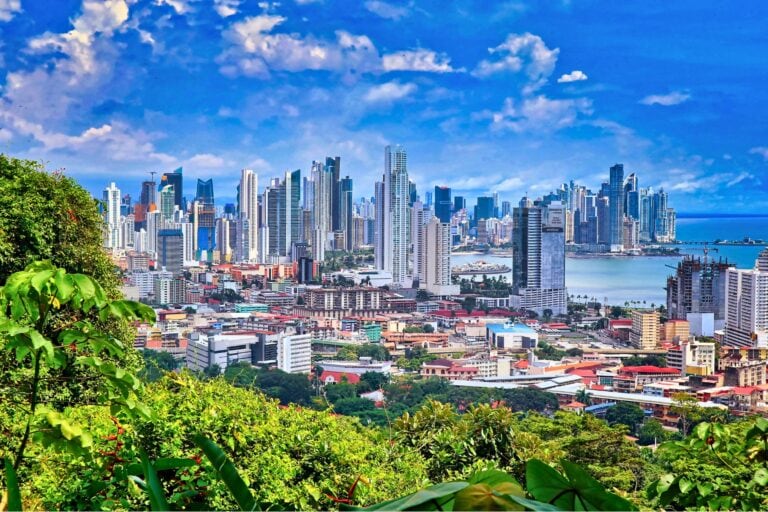
The escape to overseas retirement has never been more compelling—or more popular. According to recent analysis of official US statistics, the number of American retirees relocating internationally grew from 500,000 in 2016 to 760,000 by 2024, with projections for 2025 showing no signs of this trend slowing down.
What was once an occasional dream has become a strategic lifestyle choice for hundreds of thousands of Americans seeking to stretch their retirement dollars and enhance their quality of life.
Three powerful trends are driving this overseas exodus: an explosive growth in medical tourism as healthcare costs soar at home, a shift toward “roving retirement” that maximizes global lifestyle opportunities, and a surge in solo international adventures among newly independent retirees.
TREND 1: Medical Tourism Boom—Americans Seek World-Class Care at a Fraction of US Costs

Healthcare sticker shock is pushing more retirees abroad than ever before. Medical tourists can save up to 50-80% on healthcare costs by seeking treatments abroad, including travel expenses. What’s driving this surge? Simple math that’s impossible to ignore.
In the United States, the average cost of a heart bypass surgery is around $123,000, while the same procedure in countries like India or Mexico costs about $10,000-20,000. (Medical Tourism Statistics and Facts (2025)) In Thailand, a heart surgery costs $13,000 as compared to $113,000 in the U.S. A hip replacement procedure in Thailand costs roughly $7,800 as compared to $50,000 in the U.S. (Medical Tourism Market Size To Hit USD 252.94 Bn By 2034)
The numbers are staggering, and the market reflects this reality. The global medical tourism market size is expected to be worth around USD 35.9 Bn by 2032 from USD 11.7 Bn in 2022, growing at a CAGR of 12.20% during the forecast period from 2022 to 2032.
Take Ron Howze, who faced a double hernia repair with a price tag of $10,000 to $14,000 through his PPO insurance. Instead, he flew to Costa Rica where the entire experience—surgery, doctor’s fees, hospital stay, flights, and travel expenses—came to less than $7,000. Half the cost of just the procedure alone back home.
Dawn and Johnny Morgan discovered similar savings in Ecuador for extensive dental work. What would have cost over $17,000 in the US was completed for just $700, with the savings easily covering their airfare and accommodation.
Countries like Panama, Portugal, and Costa Rica have emerged as leading medical tourism destinations, offering world-class care at dramatically lower costs. About 50% of medical tourists choose medical tourism destinations due to access to high-quality healthcare services.
TREND 2: The Rise of “Roving Retirement”—Trading Vacation Days for Months Abroad

Forget the traditional retirement model of staying put. Today’s retirees are embracing what experts call “roving retirement”—spending months at a time in different countries, maximizing their purchasing power while minimizing visa complications.
Mary and Jeff Holt from Pennsylvania exemplify this trend. After exchanging “two households of belongings for a carry-on bag each,” they’ve spent nearly two years globe-hopping through Mexico’s Isla Mujeres, the Dominican Republic, Ireland, and Portugal. Each destination offers them a higher quality of life than what their retirement savings could provide at home.
“We are not looking for a permanent home just yet, but are spending several months at a time in dream locations full of local colors and flavor,” Mary explains.
Spain leads 2025’s retirement destination rankings, offering a non-lucrative residency visa that most US retirees can qualify for with proof of about $2,535 monthly income for individuals. (U.S. News & World Report) Panama tops International Living’s 2025 Global Retirement Index, offering the Pensionado Visa to retirees with verifiable pensions of at least $1,000 monthly, providing access to significant government-mandated discounts.
Diana L. Davis describes her roving lifestyle: “In my case, this translates to living in places around the world that cost less than living in the States. These are extended stays for me, usually a minimum of three months…with two suitcases in tow.”
Modern technology has made this lifestyle seamless. Internet connectivity allows retirees to manage finances, book accommodations, research destinations, and maintain relationships from anywhere in the world—something impossible for previous generations.
TREND 3: Solo International Adventures—Independent Retirees Going It Alone

Perhaps the most surprising trend is the surge in solo international retirement ventures. This shift also suggests a rethinking of the boundary between active life and retirement, which today is more fluid than ever before. Independent retirees are discovering that traveling alone overseas often leads to richer local connections and more authentic cultural experiences.
Carol Barron from Florida represents this growing demographic. For three years, she’s been solo traveling abroad annually for three-month stretches, scouting potential retirement locations. “Since most European countries allow 90-day stays on a tourist visa, I max my stay for the whole 90 days. I also get to enjoy grocery and restaurant discounts since their customers in off season are mostly locals.” (Best Places to Retire Overseas in 2025 | Retirement | U.S. News)
Her experience illustrates a key benefit of solo travel: deeper local integration. “Since I’m traveling alone, I tend to interact more with friendly locals and easily befriend expats,” she notes.
David Brych found his perfect solo retirement in Sancerre, France—a town of 1,600 in the Loire Valley. After 40 years in hectic Washington, D.C., he sought somewhere with “a little ‘unknown’ and a little ‘wow…how interesting.'” Sancerre delivered both, along with world-class wines, spectacular scenery, and dramatically lower costs than the US.
“Most everything is cheaper in Sancerre,” David reports. “The variety of artisanal cheeses is phenomenal, at prices that are dramatically lower than in the US.”
The New Retirement Reality
The adage “sixty is the new forty” is becoming a reality, not just in the US but globally. Many retirees are opting to continue working part-time, engage in consulting, or start new businesses. This shift often coincides with a move abroad, blending lifestyle changes with income generation.
The overseas retirement movement reflects a fundamental shift in how Americans view their later years. Rather than accepting reduced circumstances at home, they’re leveraging global opportunities to live better for less while embracing adventure and cultural enrichment.
As International Living’s Executive Editor Jennifer Stevens notes: “This year’s Index showcases safe, welcoming, good-value places where retirees can live better for less—while enjoying an adventure and finding like-minded community in surrounds that suit them.” (Best Places to Retire in 2025: The Annual Global Retirement Index)
For many retirees, the question is no longer whether they can afford to retire overseas—it’s whether they can afford not to.
More Information
International Living’s 2025 Global Retirement Index
The authoritative annual ranking of the world’s best retirement destinations, with detailed analysis of Panama, Portugal, and Costa Rica leading this year’s list.
Medical Tourism Statistics and Market Analysis 2025
Comprehensive data on the booming medical tourism industry, including current costs, savings potential, and top destinations for healthcare abroad.
US News: Best Places to Retire Overseas in 2025
Expert analysis of retirement-friendly visa programs, tax policies, and cost comparisons for American retirees considering international moves.
Global Retirement Trends and Destination Analysis
In-depth look at the growing trend of Americans retiring internationally, with official statistics and projections through 2025.
Global Citizens Solutions: Top 10 Countries for American Retirees
Detailed country profiles including safety rankings, cost of living data, and visa requirements for the most popular American retirement destinations.
Planning your next adventure? Check out our curated storefront for our favorite travel essentials—tested and trusted by seasoned travelers like us.
Inspire your next adventure with our articles below:
Want to discover more hidden gems and helpful travel tips? Join our free newsletter for the latest travel secrets and travel articles.
We are reader-supported and may earn a commission on purchases made through links in this article.
